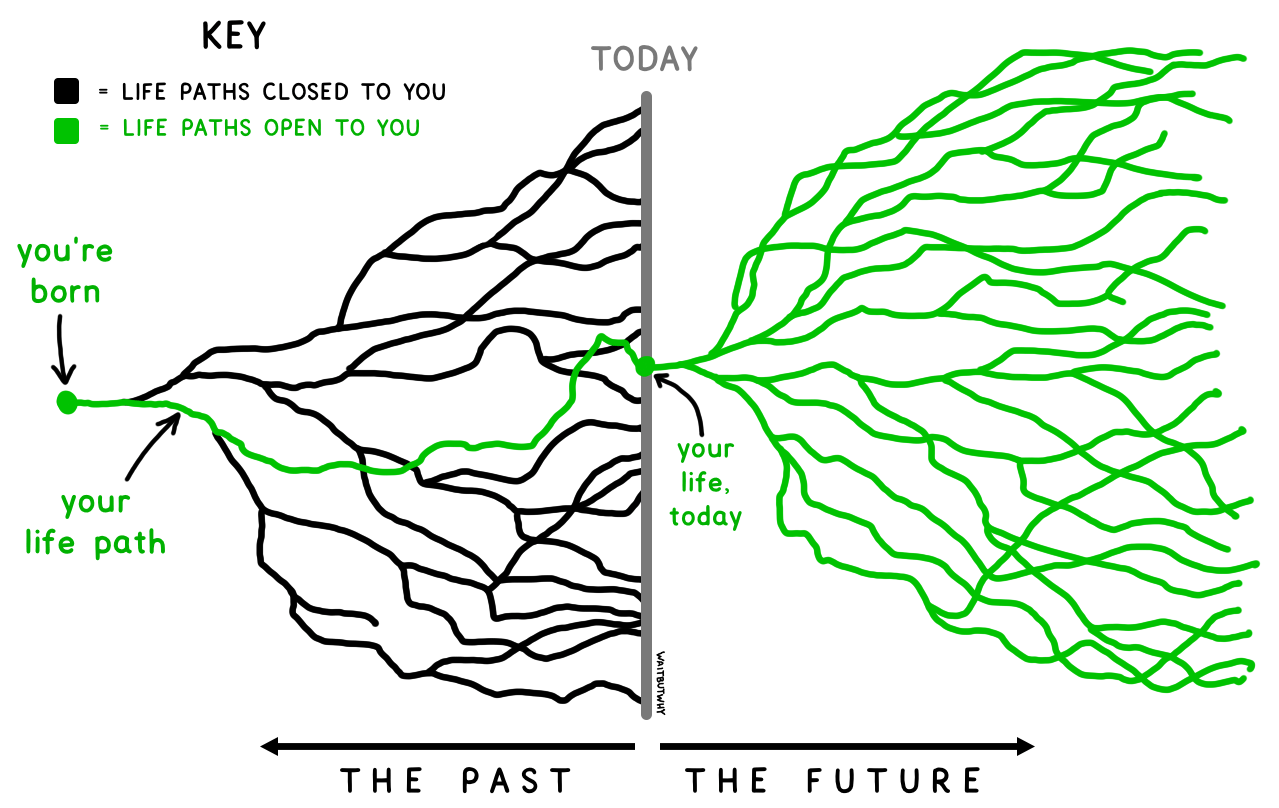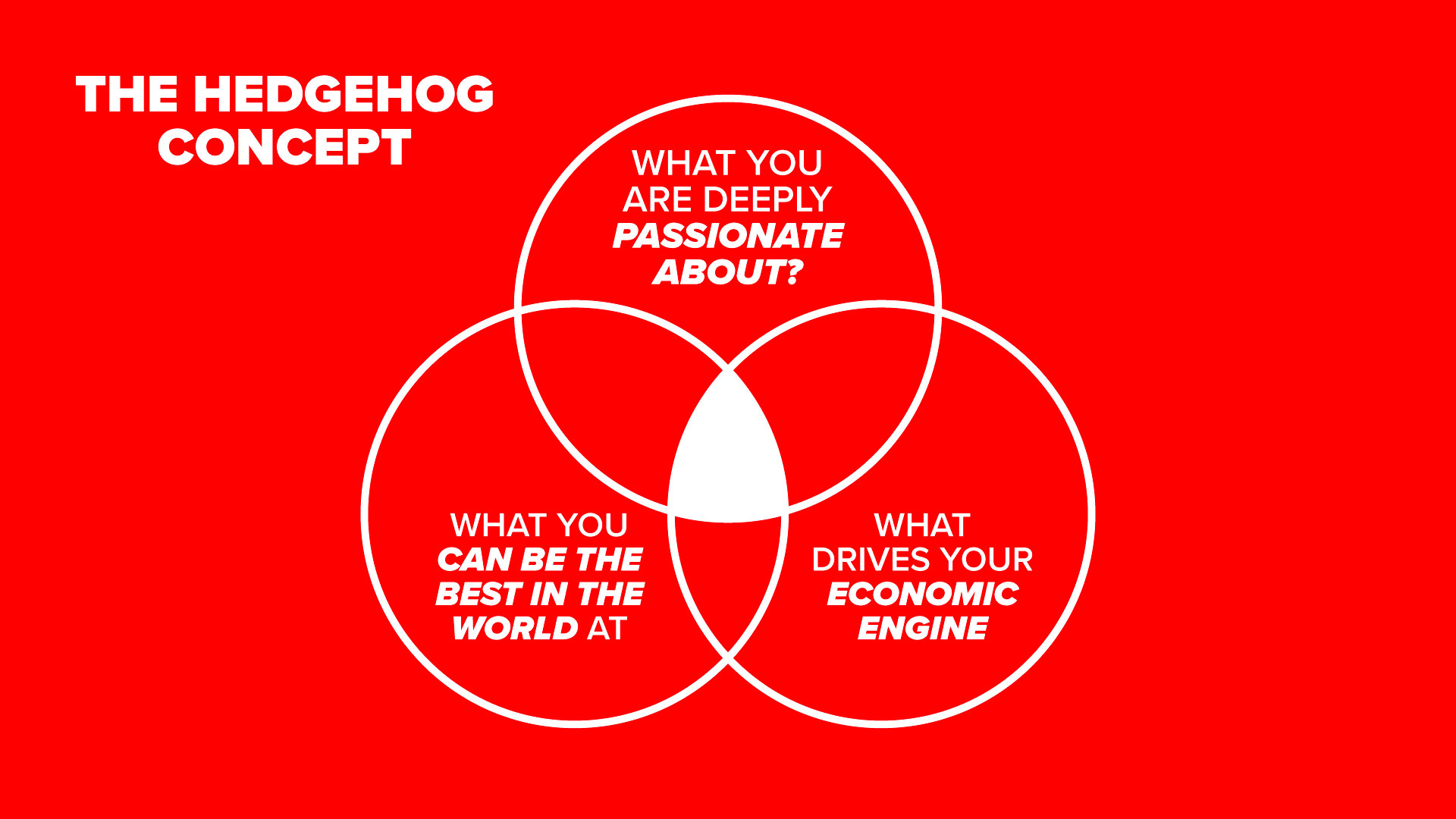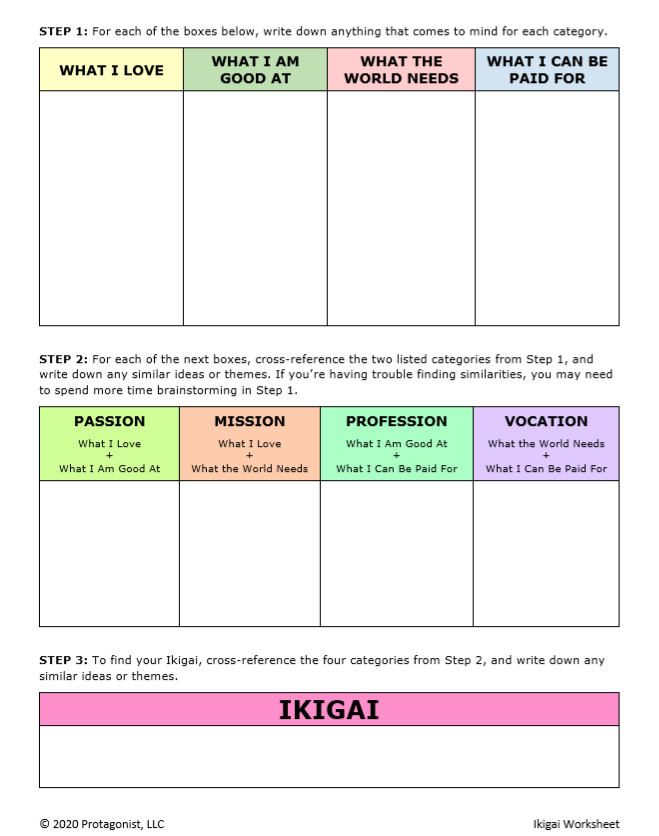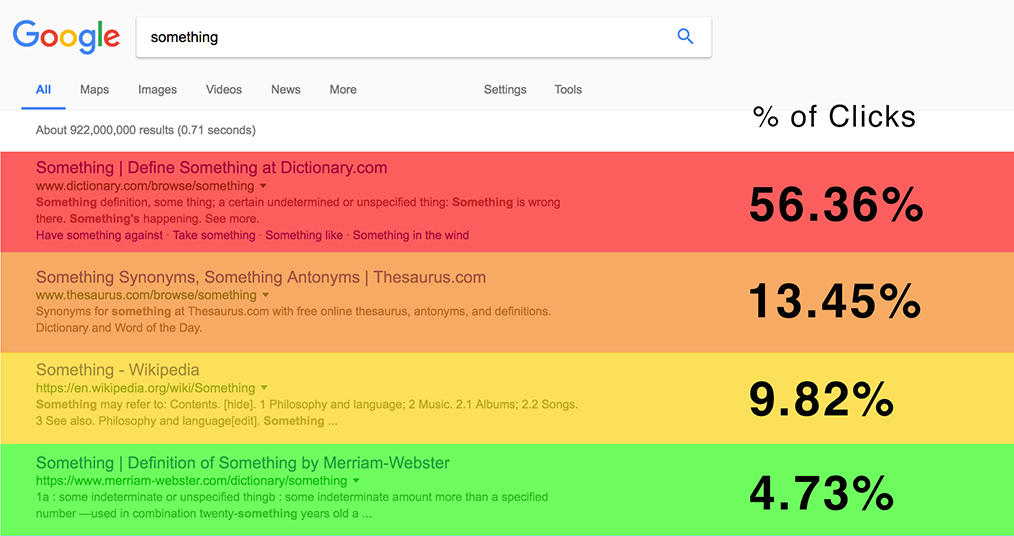But this isn’t a hard and fast rule. It just applies in some cases.
To every belief like this, there is a counter point and loads of counter examples.
For example, if you do loads of stuff, you might learn more, or you might get a higher exposure to opportunity, than if you do fewer things, and do less.
You might be more likely to find something that clicks with the market.
There is another point is that it is a good idea to start with the end in mind. Where do you want to go? And then work backwards in your plan.
But you’ve never done it before, how do you know how long it takes?
I think it also depends on what stage you are in.
For example if you are in a exploratory phase, you can try more things, because you don’t know what’s required.
Then cut down, and focus on what’s working.
If you’ve done it, or a similar task before and have some experience, it’s easier to plan the steps and work backwards.
If you don’t know what it takes, then it’s a good idea to take a best guess.
It’s also a good idea to say,
Here are some further thoughts on it with regards to content creation with examples and counter points.
Consistency is key in almost any endeavor, particularly in content creation. The idea that producing a smaller number of high-quality pieces in a specific format is more effective than spreading efforts thinly across various formats is widely accepted. Here’s a deeper look into why focusing on fewer types of content can be beneficial and also some counterpoints to consider.
The Case for Focused Content Creation
1. Enhanced Quality and Expertise When creators concentrate on a single format, such as writing articles, they can hone their skills and produce higher quality content. Specializing in one type of content allows for deeper understanding and expertise, which can lead to more valuable and engaging content for the audience.
2. Building a Loyal Audience Consistency in format helps build a loyal audience. Readers, viewers, or listeners know what to expect and look forward to new content. For example, consistently publishing articles on a particular subject can attract a dedicated readership who appreciate and trust the insights provided.
3. Efficient Use of Resources Creating content in a single format streamlines the production process. It allows creators to develop a routine and efficient workflow, reducing the time and resources spent on switching between different formats. This efficiency can lead to faster production times and more frequent content releases.
4. Stronger Brand Identity A focused content strategy strengthens brand identity. Consistency in content type and messaging reinforces the brand’s position and helps it stand out in a crowded market. For instance, a blog that consistently publishes high-quality articles on tech trends establishes itself as an authority in that niche.
Activities That Energize
Some activities, despite requiring effort, can be energizing rather than draining. Identifying these activities can be challenging, but they are crucial for long-term sustainability in content creation.
1. Passion Projects Content that aligns with a creator’s passion can be invigorating. When creators are genuinely interested in their topics, the process of researching and creating content becomes enjoyable, providing a sense of fulfillment and energy.
2. Audience Interaction Engaging with the audience through comments, social media, or live sessions can be energizing. Positive feedback, meaningful interactions, and knowing that the content is making an impact can motivate creators and provide a significant energy boost.
3. Collaborative Efforts Working with a team or collaborating with other creators can bring fresh perspectives and reduce the solitary nature of content creation. Team efforts can distribute the workload and provide a support system, making the process more dynamic and less draining.
The Importance of a Consistent Social Media Strategy
To effectively manage social media, having a team and a structured process is essential. Consistency in posting, engagement, and messaging is key to building and maintaining a strong online presence.
1. Team Collaboration A dedicated team can ensure that content is consistently produced and shared. Each team member can focus on specific tasks such as content creation, scheduling, and interaction, ensuring a cohesive and efficient workflow.
2. Structured Processes Implementing structured processes for content creation and distribution ensures that deadlines are met, quality is maintained, and the brand’s voice remains consistent. This can lead to increased engagement and a more professional online presence.
3. End-Result Focus Considering the desired end result and working backward helps in planning and prioritizing tasks effectively. It allows creators to focus on activities that directly contribute to their goals, ensuring that efforts are aligned with desired outcomes.
Counterpoints: The Case for Diverse Content Formats
While focusing on a single content format has its benefits, there are valid arguments for diversifying content creation.
1. Reaching a Broader Audience Different audience segments consume content in various formats. By producing videos, articles, and podcasts, creators can reach a wider audience. Some people prefer reading, others enjoy watching videos, and some like listening to podcasts while on the go.
2. Adaptability and Resilience Diversifying content formats can make a brand more adaptable and resilient to changes in platform algorithms and audience preferences. If one format becomes less effective, having multiple formats ensures that the overall content strategy remains robust.
3. Maximizing Content Potential Repurposing content across different formats can maximize its potential. For instance, a blog post can be turned into a video script, and a podcast episode can be transcribed into an article. This not only extends the reach of the content but also reinforces the message across various platforms.
4. Engaging Different Learning Styles People have different learning preferences. Some are visual learners, others are auditory, and some prefer reading. Offering content in multiple formats caters to these different styles, providing a more inclusive experience for the audience.
Conclusion
Both focused and diversified content strategies have their merits. The key is to balance consistency with adaptability, ensuring high-quality content while reaching a broad audience. By identifying energizing activities and implementing structured processes, creators can maintain productivity and engagement, regardless of the chosen content strategy.




